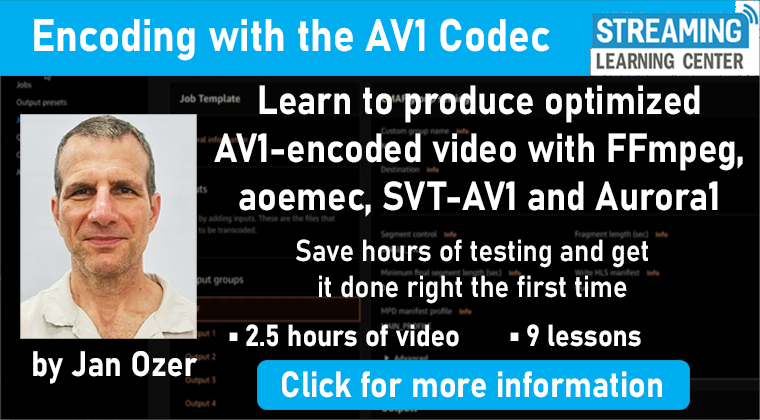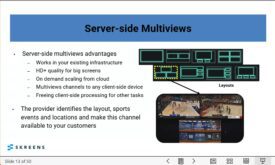Just a quick note to celebrate the first review of my Encoding with the AV1 Codec course ($99.95). By way of background, I designed the course to help familiarize students with the confusing array of AV1 encoding parameters and to offer sample command strings that I have proven over weeks of testing. In other words, to save time, which is particularly critical with AV1 because of its comparatively slow encoding times. According to V-Nova’s Guendalina Cobianchi, apparently, the materials were right on the mark.
As you may know, V-Nova is the developer of the LCEVC (Low Complexity Enhancement Video Coding) codec, which operates over base codecs like HEVC, H.264, and now AV1. Gendalina’s team has to know how to effectively encode the base layer to optimize the quality of the enhancement layer. By taking the AV1 encoding course, her team was able to learn AV1 encoding quickly and efficiently.
Here are Guendaline’s comments:
Comment: I took this course with a bunch of colleagues with the goal of QUICKLY getting up to speed with AV1 tuning, having spent significant time working with x264/x265, but being a total newby on liboam. This is very important for us at V-Nova to calibrate our smoking-fresh LCEVC AV1 implementation. Within 2-3 hours, I got a comprehensive view of what are the key parameters I should tweak to improve quality, with a good quality/performance trade-off, and Jan offered his precious recommendations on suggested default settings. Knowing AV1 is not very fast… he saved me hours and hours of testing time!
Briefly, the course includes an overview of AV1, and detailed recommendations for encoding with FFmpeg (Libaom-AV1), aomenc (the Alliance for Open Media’s standalone encoder, Intel/Netflix’s AV1/SVT, and Visionular’s Aurora1 codec. It also includes an extensive comparison of the encoders, including performance, quality, and quality consistency. Click the course banner below for more information.
 Streaming Learning Center Where Streaming Professionals Learn to Excel
Streaming Learning Center Where Streaming Professionals Learn to Excel









